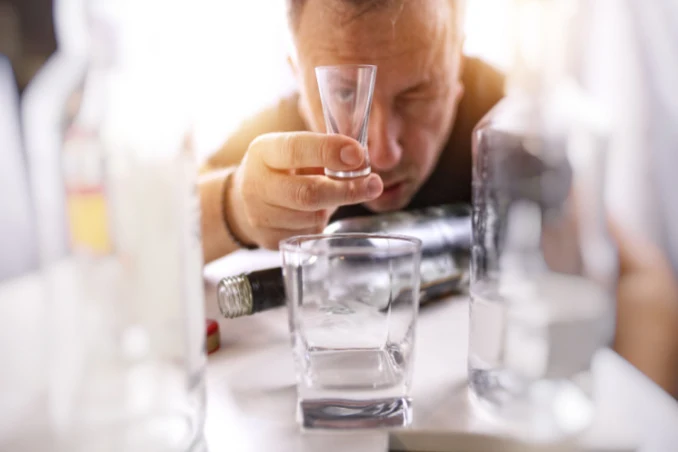Ranking the Dangers of Detoxing from Drugs
There’s no such thing as a “safe” drug. Even marijuana — which cannot cause an overdose — has its own unique dangers. But in spite of the numerous risks associated with these dangerous drugs, people continue experimenting with recreational substance abuse. It seems that the majority of people who become addicted underestimate the addictive, destructive power of these substances, resulting in their becoming physically and psychologically dependent.
While there are no drugs that are completely safe, there are some individuals who have wondered if there’s a way to gauge precisely how dangerous a drug might be. This was the goal of researcher David Nutt from London’s Imperial College. Nutt essentially created a standard scale with which mind-altering substances could be rated according to the amount of danger they posed and how addictive they were.
Upon creating the scale — based on a series of scores (from 0 to 3) for things like pleasure, psychological dependence, and physical dependence — Nutt ranked 20 different substances as part of his study, which is widely considered to be the most accurate on the subject.
24 Hour Addiction Treatment Hotline – Get Help Now
(877) 633-0053
It’s important to be aware of the danger that a drug poses, especially when it comes to detoxification. In most cases, detox is the first step of the recovery process because it allows individuals to break their physical dependence on the substances to which they were addicted so that they can better focus on the recovery process. Therefore, the following are some of the most dangerous drugs from which a person can detox.
Alcohol Detox

Although there have been numerous other drugs at the epicenter of a global addiction epidemic, alcohol remains the most problematic of all substances due to it being legal for purchase and consumption. In fact, its legal status is why there are such high rates of underage alcohol consumption.
Compared to most other mind-altering substances, the physical dependence a person develops when he or she abuses alcohol repeatedly over a period of time is extremely intense. Alcohol changes the levels of certain neurochemicals in the brain, one of which is known as GABA for short. This neurochemical is what allows a person to calm down and relax during times of stress. When a person consumes alcohol, it causes a surge in GABA that contributes to the feeling of intoxication.
Over time, the brain produces less and less GABA on its own and, instead, begins to rely on alcohol as the primary source of GABA. Unfortunately, this puts an alcoholic in an extremely dangerous situation when he or she has no alcohol in his or her system since the brain experiences a major GABA deficit. This is what can lead to delirium tremens, seizures, and other dangerous effects during detoxification. For this reason, it’s strongly recommended that alcoholics detox under continuous supervision in an alcohol detox program.
Benzodiazepine Detox
Similar to alcohol, benzodiazepines affect the level of GABA in the brain, too. With the continued use or abuse of benzodiazepines over time, the brain starts to rely on the benzodiazepines as the sole source of GABA, producing less and less GABA on its own. Without benzodiazepines, this means the individual will experience a major deficit in GABA that could lead to seizures and other such effects.
When a benzodiazepine addict decides to get help for addiction, detoxification is the first and most precarious step in the process. In an inpatient benzodiazepine detox program, the addict would receive continuous, round-the-clock care and supervision, ensuring that he or she remains safe throughout the entire process.
Methamphetamine Detox

Methamphetamine — known as “crystal meth” on the street — is an extremely dangerous chemical drug produced by amateur, self-taught “chemists” in makeshift labs created for the sole purpose of producing the drug. The drug, itself, is an extremely powerful stimulant drug with a range of effects including a marked increase in body temperature, blood pressure, and heart rate. With the continued use of crystal meth over time, the body becomes accustomed to the high rates of energy and the pressure put on the circulatory and central nervous systems.
Meth is known to cause severe insomnia, both during use and as a long-term repercussion of habitual crystal meth use. As well, there have been numerous cases of habitual crystal meth use causing individuals to manifest symptoms of psychosis due to the profound changes the drug has on the brain. When a crystal meth addict begins the recovery process, he or she must take special care during the detoxification stage by detoxing only in an inpatient medical detox program.
Methadone Detox
Most people are familiar with methadone as the most widely-used drug in medication-assisted addiction treatment, particularly methadone maintenance programs. With these programs, individuals who are addicted to heroin, prescription painkillers, or another type of opioid make daily visits to a facility where they receive doses of methadone.
Since methadone is, itself, a type of opioid, daily doses of methadone will allow addicts to forego the use of illicit street drugs without having to detox or experience withdrawal symptoms; meanwhile, methadone maintenance significantly decreases the amount of harm that opioid drug use is known to cause. However, while methadone has somewhat less value as a recreational drug, there are people who buy methadone on the street for the purpose of abuse.
This is extremely dangerous because methadone is an extremely potent opioid drug despite its recreational effects being much less pronounced. As well, methadone has a notoriously long half-life, far longer than virtually any other opioid substance. When a person abuses methadone habitually over a period of time, the individual develops a much stronger dependency on the drug than he or she would on heroin or painkillers.
Consequently, methadone is an extremely difficult substance from which to detox, causing intense withdrawal symptoms that last much longer than other opioids. For this reason, anyone who’s addicted to methadone is encouraged to detox in an inpatient medical methadone detox program.
24 Hour Substance Abuse Hotline – Get Help Now
(877) 633-0053
Freedom From Addiction to Drugs

If you have found yourself or a loved one suffering from alcoholism or addiction, you are not alone! If you are ready to change your life and live free of addiction, then Find Addiction Rehabs can help. We give you the jump start to recovery you need.
We refer to addiction treatment programs nationwide that don’t just treat the addiction, they treat the whole person and underlying causes of addictive behaviors. For more information on our program, call 1-(877) 633-0053 today. Give yourself a break, and reach out now!

